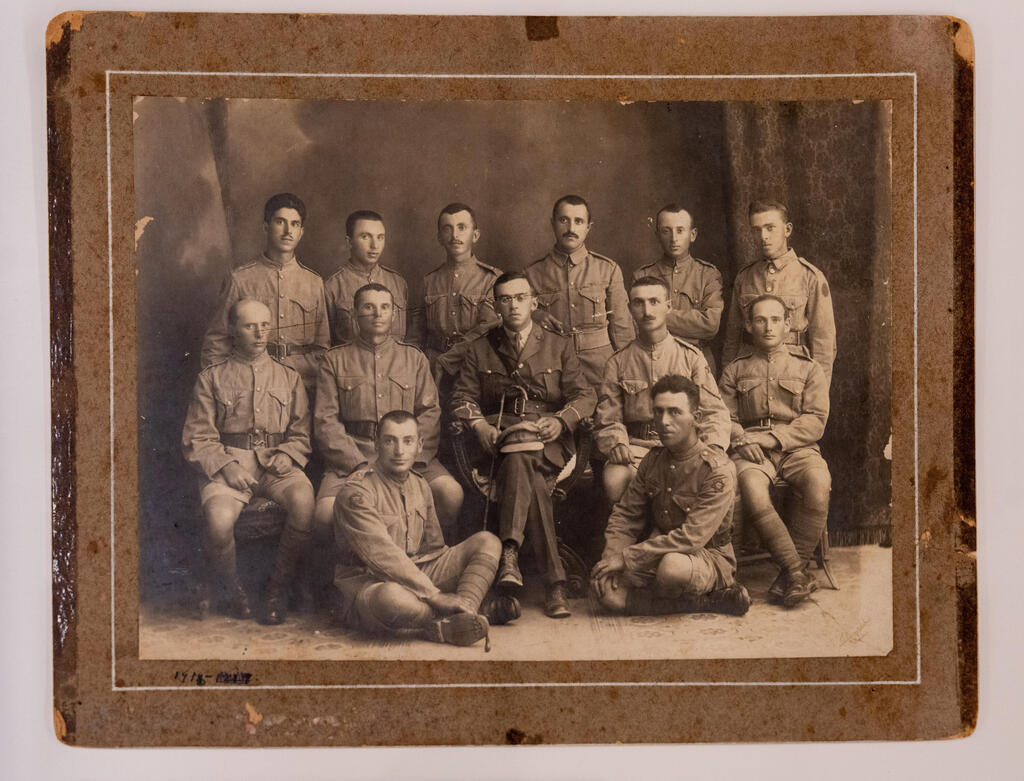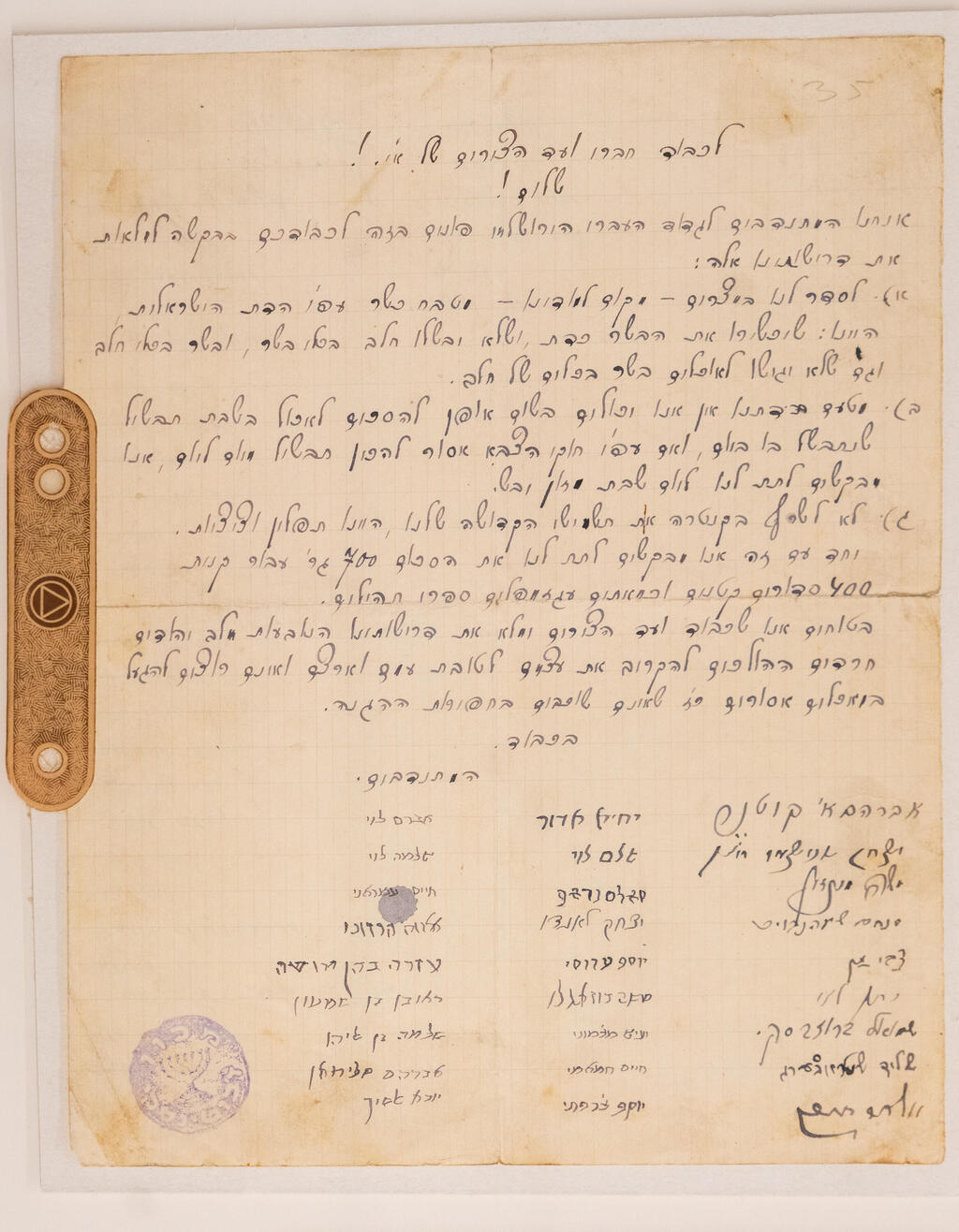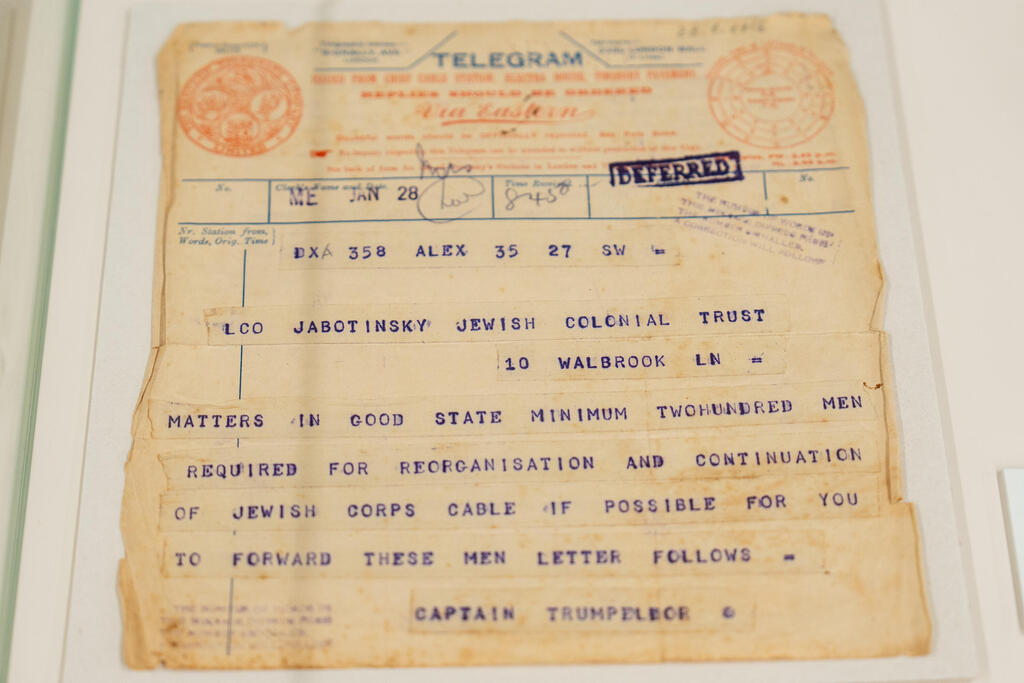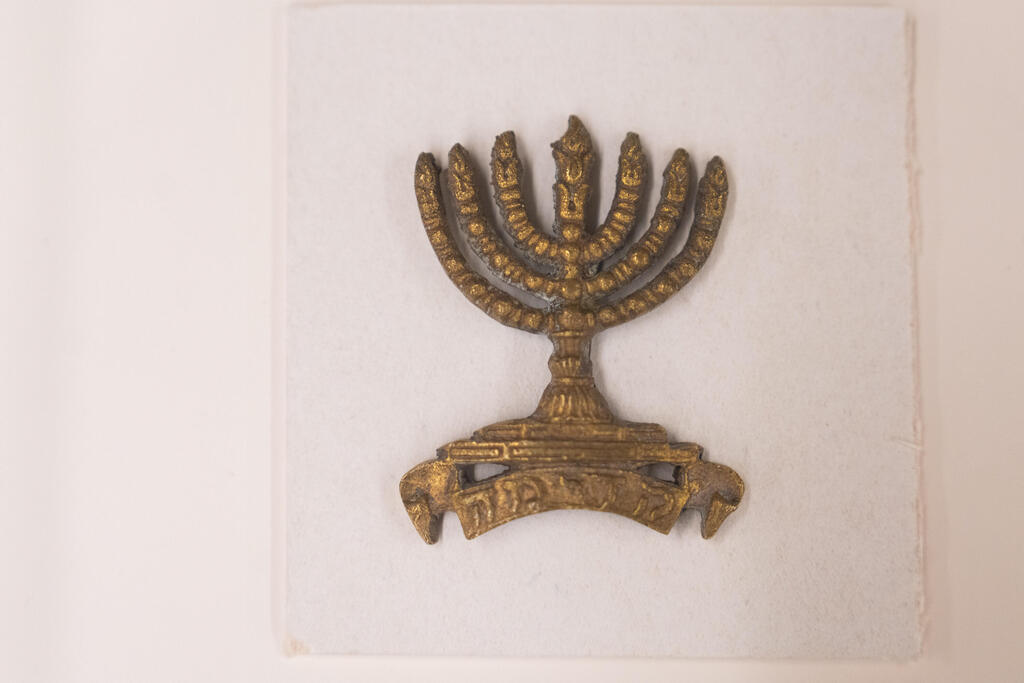Getting your Trinity Audio player ready...
The Knesset this week marked 110 years since the outbreak of World War I, during which Jewish military battalions, numbering thousands of soldiers, first fought. A display of unique items from the estate of Ze'ev Jabotinsky shedding light on one of his most significant endeavors — the establishment of the Jewish Legion — has been set up in the building.
The items on display included a telegram from Joseph Trumpeldor, one of the most famous Jewish soldiers, to Ze'ev Jabotinsky — one of the founders of the Jewish battalion within the British Army during World War I and dubbed "the first soldier of Judah"—regarding his recruitment of Jews for the Jewish battalion; and a letter from the soldiers of the Jerusalem Battalion, then in Egypt, to the Zionist Commission, requesting kosher food, prayer arrangements, and more.
In the letter, the Jewish soldiers asked to set up a kosher kitchen at the training camp in Jerusalem, according to Jewish religious laws. "The meat must be made kosher according to the law, and milk must not be cooked in meat utensils, and meat in milk utensils, and also no meat should be served in milk utensils," the letter read.
"We can’t agree in any way to eat a dish cooked on the Sabbath, and if army regulations prohibit preparing a dish daily, we ask to be given dry food for the Sabbath. Additionally, we ask for an amount of 700 Egyptian pounds for the purchase of 400 small prayer books and about two hundred copies of Psalms."
The Jewish soldiers concluded their letter by writing, "We’re sure the honorable Zionist Commission will meet our demands that stem from the hearts of devout Jews, who are going to sacrifice themselves for the sake of their people and their land and don’t wish to be defiled by non-kosher foods, as long as they aren’t lying in the trenches."
The Knesset is also displaying a letter sent by the commander of the Zion Mule Corps Battalion, John Henry Patterson, a few days after the publication of the Balfour Declaration.
In the letter, Patterson urges Edmond James de Rothschild to pressure the English War Cabinet to send a battalion of trained Jewish soldiers to the front and allow them to participate in the battles in Israel against the Ottoman army. A deep friendship developed between Patterson and Jabotinsky.
The exhibition will include a rare group photograph showing Ze'ev Jabotinsky (in the center) with a group of soldiers from the 38th Royal Fusiliers Battalion. The soldiers have a blue Star of David embroidered on their sleeves.
Additionally, several of Jabotinsky's personal items as a soldier in the British Army will be on display — including a military compass made by S. & Mordan Co., which he used during his service in the Jewish battalion, and his hat badge from his service.
The badge was designed following the pressure Jabotinsky put on General Geddes, the commander of the British Army's recruitment department. The Jewish combat unit bore its own emblem, shaped like a seven-branched menorah, with the motto coined by Jabotinsky: the Hebrew word "Kadima" (Forward).
Dr. Moshe Foxman Shaal, director of the Knesset Museum, said the influence of Jewish battalions was significant to Jewish consciousness as well. "They shattered the image of the persecuted and helpless Jew and presented to the world Jewish soldiers ready to fight for their country and the establishment of their homeland."






